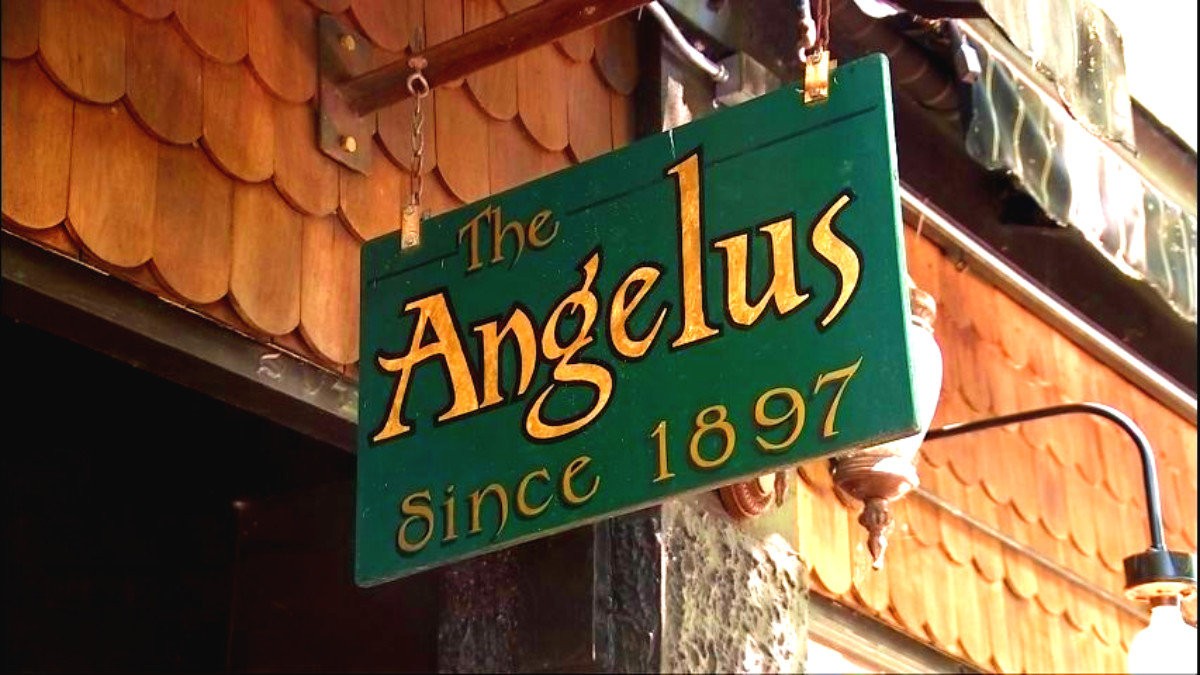Filed under: Analysis, Gentrification, Housing, Northwest

An analysis from the Olympia Solidarity Network about the meaning of a recent eviction in the Downtown area of the city.
In early May, over a third of tenants of the Angelus Apartments in downtown Olympia were issued 20-day tenancy termination notices. New co-owner of the property, investor and apparent house flipper Tom Glaspie neglected to include any justification for the sudden evictions. Tenants called management to find out why they’re being asked to leave, only to be told they don’t “fit with the plan for the future of the building.” If the plan for the building involves anything like making mad stacks of profit on jacked up rent, newly possible due to creeping gentrification, it requires vacancies. Any low-income tenant in the way already “doesn’t fit with the plan.” Allegations such as noise disturbances, illegal activity and unpaid rent leveled upon tenants by Glaspie that were later reported by news agencies, apparently bore little on the eviction process however. Therefore, instead of issuing “pay or vacate” or “cure or quit” notices that relate to specific landlord-tenant disputes, no-cause tenancy terminations were issued, permitting a swift and indiscriminate boot and hinting at the larger economic forces at work.
Sudden, unexplained mass evictions and likely subsequent conversion of Angelus apartments into expensive, market-rate units is a forewarning to Olympia residents: as our property values increase in our downtown core, real estate investors and developers will gobble up cheap property, drive up rents and kick out lower-income tenants to seek a more affluent and exclusive clientele. The more luxury apartment complexes pop up all over town, the faster residents will be priced out of longtime homes.
“The gentrified vision of Olympia that the Angelus evictions point to is not an Olympia for its current residents. It is an Olympia for the rich, complete with ugly condos no one can afford and fancy shops selling stuff no one needs. Let’s keep this vision a vision, and not a reality.”
While gentrification can appear a complex and inevitable process, it is constituted by specific individuals who make conscious, calculated decisions: landlords decide to hike rents and evict families and developers decide to tear down low-cost housing and replacing it with luxury units. From a brief gleaning of available public information, Tom Glaspie seems to fit the profile well: a shadow investor who apparently periodically creates shell companies for the purpose of house-flipping and other shady real estate endeavors. Some of these shell companies have been administratively dissolved, indicating sketchy, potentially illicit financial behavior. The predatory real estate industry producing gentrification in city after city is fraught with money laundering, tax evasion, fraud and other illegal activities. In cruel irony, while landlords and real estate investors frequently skirt the law to secure hefty profits, they have no problem invoking the law to punish and displace tenants.
The City of Olympia’s proposed offer of financial assistance (this offer hasn’t been guaranteed as of this writing) to Angelus tenants facing displacement isn’t unusual either. City governments frequently intervene to smooth over the thorniest aspects of gentrification. This often takes the form of punitive policing and the criminalization of homeless and marginalized residents of gentrifying neighborhoods. Olympia is no stranger to anti-homeless practices, from a policy of “whack-a-mole” homeless camp sweeps to the closure of the Artesian Commons. But city governments also assume more conciliatory approaches, such as providing moving assistance to tenants being pushed out. These funds can be crucial for tenants in immediate terms but they do nothing to stymie displacement or address the severe lack of affordable housing. Moreover, the landlord in question is let off the hook. Instead of landlords or developers assuming any responsibility for the social consequences of their actions, the city government effectively subsidizes displacement for them. This pattern could encourage further mass evictions in the future.
The evictions at Angelus are only the beginning. More than ever, it is time to talk, organize and strategize with our neighbors – whether we rent an apartment, own our home or have no housing at all. The gentrified vision of Olympia that the Angelus evictions point to is not an Olympia for its current residents. It is an Olympia for the rich, complete with ugly condos no one can afford and fancy shops selling stuff no one needs. Let’s keep this vision a vision, and not a reality.





